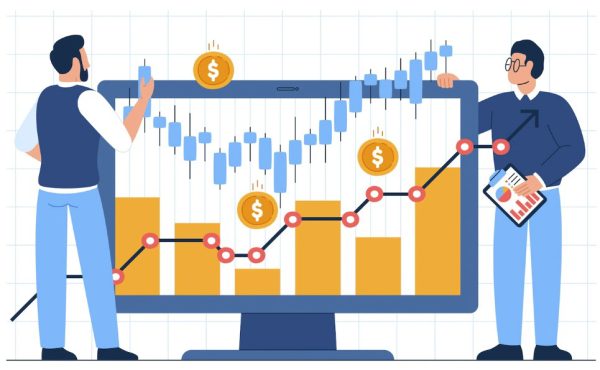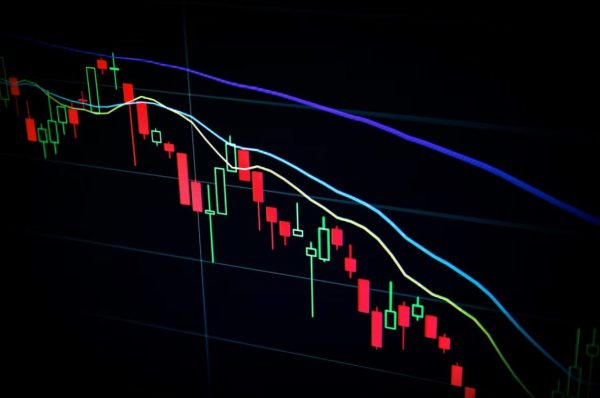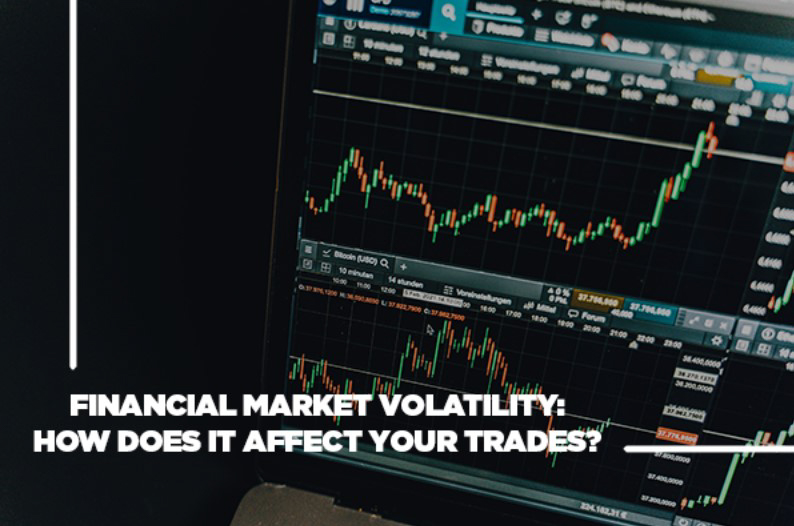What exactly is financial markets volatility and why does it worry even the most seasoned traders? Find out its impact on your trading plans now!
The sun never sets with trading on financial markets. Events from all over the world make an impact on the movements of the markets, bringing their gains or losses without resting. Except for the safe and stable stocks, the rest may constantly experience significant price changes due to the occurring global news – such a state is also known as the ‘volatility’ of the market.
Financial markets volatility is basically inevitable no matter where you are having your eyes on it. Although at first glance, a prolonged period of volatility poses an alarming phase for the market, it is actually profitable and is the key to some trading strategies, especially day trading ones that require drastic price fluctuations.
What is Volatility?
Volatility is generally defined as the quality to change suddenly away from or to become more significant than, for better or worse, the stable average. In finance, it is regarded as a statistical measure of recorded prices for a specific financial asset. Broadly speaking, the higher the volatility, the higher the risk.
Financial markets volatility is observed and calculated as either variance or standard deviation between returns from the same asset within a period. It can also be viewed as the embodiment of uncertainty and is usually associated with certain situations such as big swings in either direction.
A lower volatility means that the value of a security does not fluctuate dramatically and therefore is more stable. It is essential that traders pay attention to volatility when choosing a market and making trades since it will be one of the key factors to the success of your trading plans.

Types of Volatility
When it comes to the types of volatility, we are talking about their measure process rather than just the state itself. Financial markets volatility is generally divided into two different types: historical and implied volatility.
While the historical volatility measure involves inspecting back at the past market prices within a series of time, the implied volatility measure means taking a look forwards into the near future with the help of technical analysis of past and current recorded statistics.
Historical Volatility
Historical volatility (HV), also known as statistical volatility, inspects the changes in underlying securities by measuring price fluctuations over predetermined time periods. Because it is not forward-looking, it is less common than implied volatility.
When a rise occurs in historical volatility, the price of an asset is expected to make a more significant move because something will be or has been changed. On the other hand, If historical volatility falls, it means that any uncertainty has been cleared out, and things would soon come back to normal.
Implied Volatility
Implied Volatility, also known as projected volatility, enables traders to forecast how volatile the market will be in the future by computing probability using given information and recorded returns. In contrast to historical volatility, implied volatility is derived from the price of the asset and represents the expected price fluctuation for the near future.
It is obvious that predictions may not be absolutely precise. As it is ‘implied’, traders should not just depend on them entirely as an indicator of their trading performance. However, they offer insightful information when carefully analyzed and treated as stepping stones for making further decisions.

How is Financial Markets Volatility Measured?
Financial markets volatility is calculated by using the standard deviation from the price fluctuations over a time period, therefore enabling traders to see how much certain values differ from the average one.
Standard deviations are useful because they not only tell you how much a value can change, but also provide a framework for the likelihood that it will occur. Traders calculate volatility from market standard deviations by themselves based on end-of-day trading values, changes in values within a trading session (intraday volatility), or projected future value changes.
Casual traders that are not too familiar with technical analysis usually take advantage of the Chicago Board Options Exchange’s Volatility Index, or just VIX, to have a better understanding and insightful overview of the volatility state of the markets.
VIX is a real-time market index that shows the expected values for volatility over the next 30 days. As it represents volatility, VIX has the same aspects such as rising when stock prices fall and vice versa. Investors utilize the VIX to gauge the risk and the fear happening in the current market and thus have more information to make decisions.

What to Do During Financial Markets Volatility?
With their experience, seasoned traders should have countless ways to deal with the financial markets volatility up their sleeves while freshers may have a tougher time maintaining their portfolios, let alone making consistent profits.
One thing to keep in mind is that there are certain ways to deal with the dramatically changing movements of the markets and no true trader panics-sell their stocks when the markets drop.
When high volatility strikes, and you wait for so long just to eventually exit at some point, you may never recover the lost values as well as miss out on the potential gains when the markets rebound back. When the situations get out of control, consider these approaches for making a better decision.
- New opportunities in this bearish state: the downward trends of the markets also mean new opportunities to get yourself new assets even from some big companies at ‘discounted’ prices, surely making considerable profits when the prices go back to the equilibrium level.
- Restructuring your trading plans to adapt to the new state: financial markets volatility can lead to abrupt changes in investment values, which may get your asset allocation to stray further from your targeted divisions. During these times, you should rebalance your portfolio to get it back in line with your investment objectives and the level of risk you prefer. The process involves selling some of the asset class that has unintentionally grown to comprise a larger portion of your portfolio and using the proceeds to purchase more of the asset class that has shrunk too much.
- Preparing a stable fund to backup your trading plans: financial markets volatility should not be a concern unless you need to sell an investment since you could have to do so in a bear market. For this reason, it’s crucial for investors to have an emergency fund that can cover three to six months’ worth of living expenditures or even more if you have something big and not trading-related in mind.
Conclusion
Financial markets volatility is not just a once-in-while situation that takes every trader on the markets by surprise but something that you should always have plans to respond to the markets and maintain your trading portfolios.
Fresh traders should bear in mind that the markets will eventually bounce back to the equilibrium point and the big companies that you have invested in will have their response to such a crisis. When high volatility strikes, the most important thing is not to panic and lose your patience, believing that you will find new profitable chances and regain from losses in the end.
References
https://en.wikipedia.org/wiki/Volatility_(finance)



